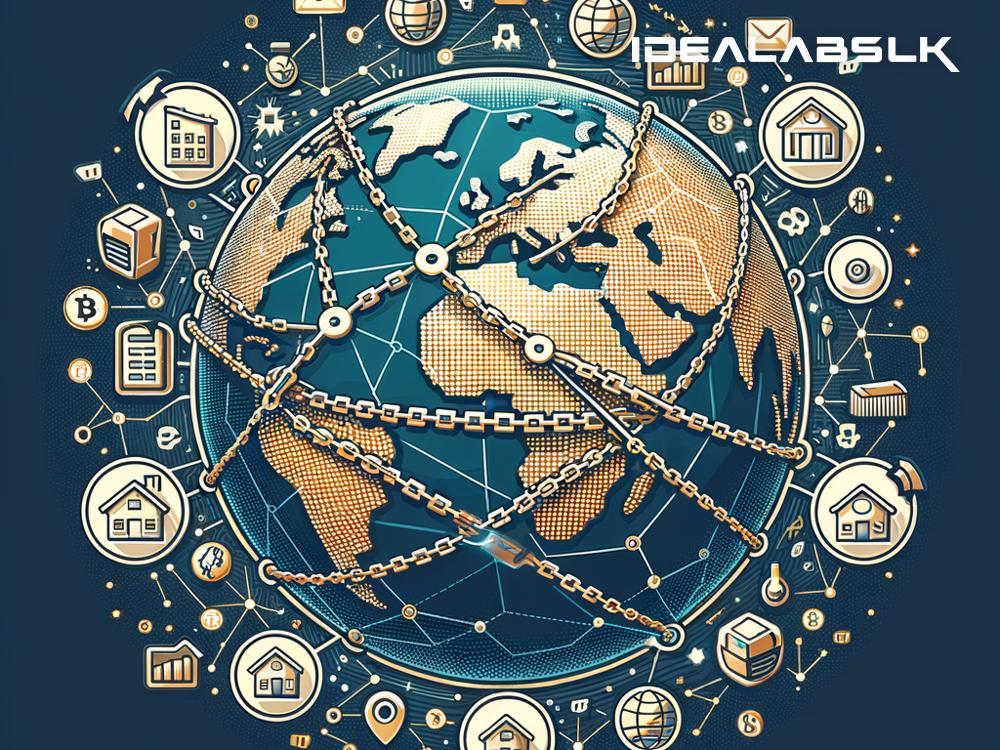Blockchain for Real Estate: How It's Making Cross-Border Transactions Easier
When we talk about buying and selling property, the process is famously fraught with paperwork, middlemen, and a whole lot of waiting and uncertainty. This is especially true for cross-border transactions, where buyers and sellers from different countries face even more complexities, including currency exchange, legal discrepancies, and often, a lack of transparency. However, an innovative technology, blockchain, is starting to change things for the better, making these transactions smoother, safer, and much more straightforward.
What Is Blockchain?
At its core, blockchain is a digital ledger - think of it as a highly secure, highly transparent record-keeping system. What makes it unique is its decentralization. Instead of being stored in one place, like a bank's database, copies of the blockchain ledger are spread across many computers, making it incredibly difficult to hack or tamper with. This technology is the backbone of cryptocurrencies like Bitcoin, but its potential stretches far beyond just digital money.
Simplifying Cross-Border Real Estate Transactions with Blockchain
1. Reducing Paperwork and Speeding Up the Process
One of the main hurdles in cross-border real estate is the overwhelming amount of paperwork. Traditionally, every step - from initial offers to final sales - requires documents, verifications, and approvals. Blockchain can consolidate these into digital contracts, known as smart contracts, that automatically execute transactions once conditions are met. This not only cuts down on paperwork but also significantly speeds up the process.
2. Cutting Down Middlemen
Typically, a multitude of intermediaries, including real estate agents, lawyers, and banks, are involved in property transactions. Each adds a layer of complexity and fees. Blockchain introduces a way to conduct these transactions directly between buyer and seller, thus reducing the need for middlemen, and in turn, lowering transaction costs.
3. Enhancing Security and Transparency
One of the biggest concerns in cross-border transactions is trust. Buyers might be wary of scams, while sellers fear fraudulent payments. Blockchain's transparent nature offers a solution. Since every transaction is recorded on a blockchain, it's nearly impossible to forge or delete records. This creates a permanent, undisputable history of ownership and transactions, making the entire process much more secure and transparent.
4. Streamlining Payments
Currency exchange is another hurdle in cross-border transactions. The process is often slow, and the fees can be exorbitant. By using cryptocurrencies like Bitcoin, blockchain allows for instant, secure payments without the need for currency exchange or the heavy fees charged by banks. This not only simplifies transactions but also makes them more affordable.
5. Overcoming Legal Barriers
Different countries have different laws, which can be a major obstacle in international real estate. Blockchain can help by storing and verifying legal documents and compliance certifications across jurisdictions. This ensures that all parties meet the necessary legal requirements, making the process smoother and sometimes even possible where it wouldn't be otherwise.
Real-World Examples and Advantages
Several companies and countries are experimenting with blockchain for real estate with promising results. For instance, a project in Dubai aims to put all its real estate records on a blockchain, streamlining the process of buying and selling property for all parties involved, including international investors.
In practical terms, this means a more efficient market. Buyers have access to more options globally, and sellers reach a wider audience. The reduction in fees and the increased speed can make real estate investments more appealing and accessible, potentially boosting markets.
Conclusion
Blockchain technology is still relatively new and evolving. While there are challenges to overcome, such as legal recognition and the need for global standards, the potential benefits it offers for cross-border real estate transactions are undeniable. With its ability to simplify and secure the process, reduce costs and increase accessibility, blockchain could very well be the future of real estate around the world. For buyers, sellers, and the market as a whole, that future looks brighter, more efficient, and a lot more exciting.

